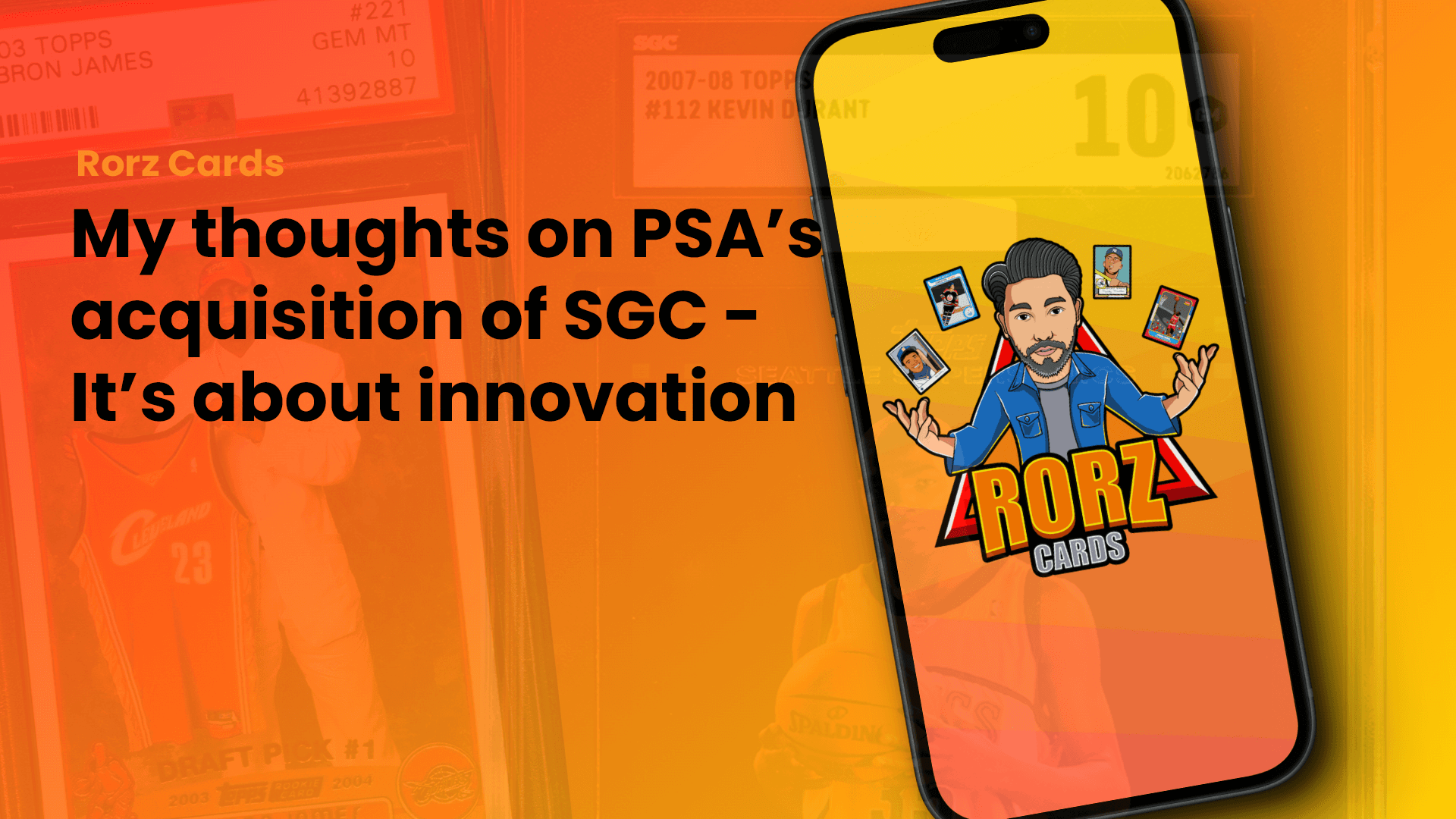
In the telecom industry, there’s this concept called “flanker brands”. Verizon has Visible, AT&T has Cricket Wireless and T-Mobile has Metro. The purpose of these flanker brands is to innovate on pricing and provide a means through which to challenge some of the newer, cheaper MVNOs that operate in the US like Mint Mobile, Boost Mobile amongst others. These flanker brands allow Verizon, AT&T and T-Mobile to continue to operate as premium cellular offerings while also able to fend off lower-priced competition through these cheaper, low-cost offerings. They can also use these flanker brands to experiment with innovations (service, pricing, technology) that might be too high risk to try in the premium brands, eg. self-service only support models.
It’s my opinion that PSA’s acquisition of SGC is rooted in this notion, though applied to the sports card grading industry. In recent years, we’ve seen new card grading company entrants like TAG Grading, HGA, and Rare Edition start to challenge PSA, not so much on the value-add created through grading but via technological improvement to the grading process; AI-based grading for greater objectivity and accuracy, transparency via detailed grading reports, custom labels, etc. They also offer more aggressive pricing and faster turnaround times.
PSA on the other hand is the defacto leader in the card grading industry and their slabs are the most prestigious of all graded cards. Any time they start to aggressively discount submission fees to match and/or beat their competitors’ pricing, they risk tarnishing their premium image. Also, given the volume of cards that are submitted and graded monthly, any process or technology change comes with a ton of risk and change management. If things backfire, this can further tarnish their image. Just think of when Beckett tried to introduce their new grading scale so that 9.5’s became 10’s!
SGC offers a lower-cost “flanker brand” that can be used to aggressively fend off the new entrants and the combined CGC Cards entity. You’ve already seen SGC try some innovative partnerships, such as with Topps on $9 grading specials. Given that they also handle smaller volumes, they can also innovate more freely on processes, policies, pricing and technology, incurring less risk and change management overhead. When they discover things that work, they can then fold those improvements into the PSA brand.
Finally, and this one should be obvious, card grading is about economies of scale. The more cards you grade, the better economics you can achieve. Fixed costs start to decrease on a per-card basis and you can also bring to bear greater negotiating power when dealing with vendors and suppliers given the increased volume.
So, yes, SGC offers additional volume that’ll help the bottom line. And they’re a respected brand amongst, especially with vintage cards. But it’s my opinion that the acquisition is rooted in innovation and competition.
What do you think of PSA’s acquisition of SGC? Let me know in the comments.
